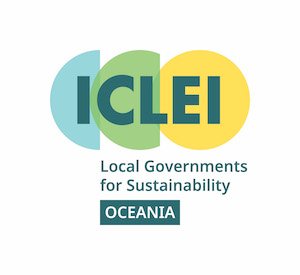Australian Mayors urge greater support for Local Government Climate action
Mayors from around Australia have put climate action on the agenda at the first Australian Council of Local Government (ACLG) meeting. The ACLG is an Albanese Government initiative to engage with Mayors of Australia’s Councils. Mayors representing a broad range of councils from around Australia presented a Statement calling on the federal government to recognise and resource the critical role of local government to drive national emission reductions.
At the ACLG meeting, mayors representing councils from around Australia presented a Statement that rallies firmly behind attaining a net zero emissions pathway for Australia by 2050. The Statement, endorsed by a broad range of local council leaders across States and the majority of capital city mayors, emphasises the need to recognise and resource the critical role of local government to drive community-level climate action.
Responding to the 23-24 Federal budget allocations that aim to deliver more than $1.6 billion for energy-saving upgrades for homes, businesses and social housing, local councils are clear that they are well poised to contribute meaningfully to climate solutions. The Statement cites a number of locally-led programs to help drive faster progress on their climate targets, and resilience building at the local community level across the nations.
Local government is very well placed to assist Government facilitating:
Policy reforms for decentralized distributed renewable energy generation and storage technologies.
Commercial building retrofits and increased capability in the construction sector to deliver them, driven with an incentive fund.
National methane emission reductions with expanded waste processing options for organic waste and recyclables and driving circular economy opportunities.
Electric Vehicle charging infrastructure at community facilities, public and active transport infrastructure and help overcome barriers that prevent uptake of these solutions.
Community resilience if increased investment funding follows a climate risk framework and transition plan to build more resilient housing and reduce the un-insurability of properties.
Green building standards for new buildings and fuel efficiency standards to reach zero emissions for vehicles.
In fact, local governments around the nation have a decades-long track record in implementing energy efficiency and renewable energy projects on their buildings, changing streetlights to LEDs, switching to electric vehicles and becoming carbon neutral. They have also worked with residents and local businesses on projects that have resulted in millions of tonnes of greenhouse gas mitigation.
Some of the successful Council led programs include:
The Solar Savers program facilitates the quick uptake of solar power by offering free advice and trustworthy quotes to residents and business owners.
The City Switch program has improved energy efficiency and electrification of over 1070 commercial tenancies covering over 4.9 million square metres of space.
Solar My School has been helping schools go solar, with support from start to finish.
Smart Green Apartments provides advice and access to resources to reduce energy and water use in apartment buildings
These established programs, designed and run by Local Councils, have demonstrated success in engaging with residents and businesses and getting energy and climate finance out the door in an equitable and reliable way. These initiatives have also mobilised communities throughout the nation to lead the challenge at the grassroots level.
Whilst acknowledging the good strides made in delivering Australia's national climate response, leaders are advocating for stronger support to scaling up these local initiatives. Councils are the secret weapon for climate action and the next steps in accessing climate finance are critical.
Read the Mayor’s Statement on Climate Action to the Australian Council of Local Government, signed by a diverse group of local Mayors.
